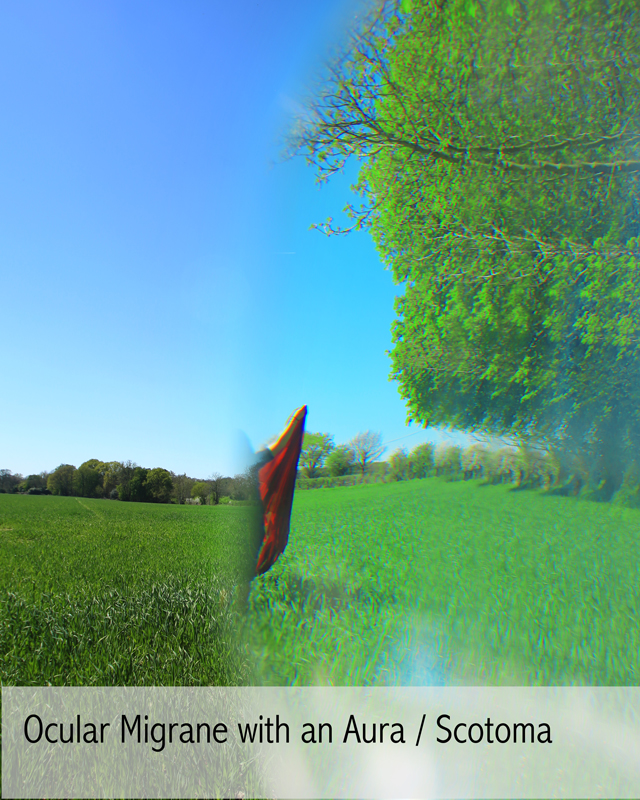

This will be monitored in your follow-up appointments. There's a small risk that the reduced bloodflow may damage the thin layer at the back of the eye (the retina) and the blood vessels of the eye.

Possible complications of retinal migraine However, there's still a lack of research about the best way to treat or prevent a retinal migraine.

a beta-blocker – which may help relax blood vessels.aspirin – to reduce pain and inflammation.Your doctor may sometimes prescribe medication, such as: Treatment for retinal migraine usually just involves taking pain relief for any headaches and reducing exposure to anything that might be triggering the retinal migraine. people with an underlying disease – such as lupus, hardening of the arteries, sickle cell disease, epilepsy, antiphospholipid syndrome, and giant cell arteritis.people with a personal or family history of migraines or other headaches.Retinal migraine tends to be more common in: Usually there are no abnormalities within the eye and permanent damage to the eye is rare. Retinal migraine is caused by the blood vessels to the eye suddenly narrowing (constricting), reducing the bloodflow to the eye.Īfterwards the blood vessels relax, bloodflow resumes and sight returns. You may be referred to an eye specialist for tests to rule out other more serious eye diseases or stroke, or TIA. However, as attacks are usually brief it's more likely you'll be diagnosed based on an account of your symptoms. In this case the GP or optometrist may be able to make a confident diagnosis of retinal migraine. If you manage to see a GP or optometrist during an attack, they may be able to see the decreased bloodflow to your eye using an instrument called an ophthalmoscope. If you are concerned that this could be the case please contact your local optometrist/optician for advice It is important to note that if you get flashing lights that don’t go after a few minutes and new onset floaters, these symptoms may represent a retinal detachment. There are other more serious causes of sight loss that doctors will want to rule out. It's important to see an optometrist/optician or medical doctor urgently if you suddenly lose your eyesight, particularly if it occurs for the first time.

Use our directory to find opticians or find GP services.
#Vision migraine aura free
If your eyesight suddenly deteriorates, make an emergency appointment to see an optometrist/optician your GP, or call 111.Īn appointment for a sudden change in your vision, in Wales is likely to be free of charge on the NHS, ask the practice that you contact for details Some people see a mosaic-like pattern of blank spots (scotomas), which enlarge to cause total loss of vision. Vision may slowly become blurred or dimmed, or there may be flashes of light. The same eye is affected every time in almost all cases. It's unusual for an episode of vision loss to last longer than an hour.


 0 kommentar(er)
0 kommentar(er)
